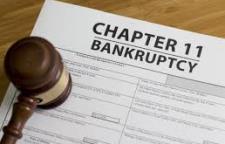 Borden Dairy company, established 163 years ago, filed for Chapter 11 bankruptcy protection in Delaware on January 5th. The company had $1.2 billion in 2018 sales that generated a loss of $14.6 million. The loss in 2019 will exceed $45 million.
Borden Dairy company, established 163 years ago, filed for Chapter 11 bankruptcy protection in Delaware on January 5th. The company had $1.2 billion in 2018 sales that generated a loss of $14.6 million. The loss in 2019 will exceed $45 million.
Borden has twelve manufacturing plants, 75 distribution centers, and draws milk from 260 family-operated dairy farms and farmer’s cooperatives. The company distributes through major supermarket chains and supplies school districts.
 The action by Borden follows a previous filing under Chapter 11 by Dean Foods. Problems facing large dairy companies include consumer preference for milk substitutes, vertical integration by chains including Walmart (which opened a large midwest dairy), and overproduction. Margins have shrunk as a result of higher costs for raw milk, and increasing transportation expenses.
The action by Borden follows a previous filing under Chapter 11 by Dean Foods. Problems facing large dairy companies include consumer preference for milk substitutes, vertical integration by chains including Walmart (which opened a large midwest dairy), and overproduction. Margins have shrunk as a result of higher costs for raw milk, and increasing transportation expenses.
It is estimated that the assets of Borden are in the region of $100 million and according to Bloomberg News, liabilities may exceed $500 million. In July 2017 Borden Dairy negotiated: a $275 million credit facility comprising a $30 million term loan held by PNC Financial Services Group, a $175 million term loan held by other lenders, including KKR and Company, and a $170 million revolving credit facility provided by PNC.
The CFO of Borden, Jason Monaco, noted that negotiations to restructure the company with a forbearance agreement expired on Monday, January 6th and the company needs to draw down from a $826 million account to reimburse milk suppliers.
Borden has 3,200 employees of whom a quarter are subject to a union bargaining agreement.
The majority owner of the company, Acorn Investments LLC, will be instrumental in the reorganization.
The plight of the dairy industry should be a warning to egg producers, given prolonged low prices and mounting losses. It is indeed fortunate that the industry has not experienced escalation in feed costs, which has restrained losses in a market oversupplied by at least 5 million hens.